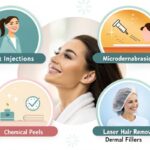Eyes are the windows to a vibrant, fulfilling life, but modern challenges like screen strain, pollution, and dietary deficiencies can cloud that view. While many eye health issues are unavoidable with age, incorporating natural remedies and nutrient-rich foods can help maintain your vision.
This article offers a comprehensive look at essential practices to nourish and protect your eyes—from the benefits of antioxidant-rich foods to simple eye exercises and lifestyle tweaks. Read on to discover how a few mindful adjustments can keep your eyesight sharp and resilient for years to come.
Eye Health Essentials
Importance of Eye Care
Taking good care of those peepers is crucial for feeling swell and living life to the fullest. Easy-to-maintain eyesight can make everyday activities a breeze, keep you safe, and add a touch of sparkle to your days. If you’re juggling a nine-to-five and staring at screens, tackling digital eye strain should be high on your list.
Parents, make sure your kiddos have healthy eyes too. For the more experienced crowd, those golden years bring their own eye twists, so stay ahead! And if eye issues run in your clan, keep an eye out and maybe take some extra precautions.
Keeping your eyes in tip-top shape means more than just looking good in shades. Sunglasses aren’t just for style—they guard against those sneaky UV rays. Handle contact lenses with care, and your eyes will thank you. Load up on meals packed with goodness and maybe even pop an eye health supplement or two. Swing by your trusted eye health professional to catch any blips before they become botherations.
Common Eye Health Concerns
Knowing the nitty-gritty of potential eye issues can be a game-changer. Here’s the lowdown on what might be coming down the track for your vision perks or quirks.
- Digital Eye Strain: Screens, screens, and more screens can wear your eyes out. You might feel like your peepers are as dry as the desert, with headaches and that fuzzy vision trick stirring up. The old 20-20-20 rule is like yoga for your eyes: every 20 minutes, take a 20-second look at something 20 feet away. Your eyes will give you a silent nod of gratitude.
| Condition | Symptoms | Target Group |
|---|---|---|
| Digital Eye Strain | Dry, tired eyes, headaches, blurred vision | Office warriors |
- Age-Related Macular Degeneration (AMD): As the years stack up, so might this sneaky condition that makes central vision go foggy. Load up on nutrient-rich nosh to ease the journey, and get those antioxidants in place to slow AMD’s roll.
| Condition | Symptoms | Target Group |
|---|---|---|
| Age-Related Macular Degeneration | Hazy or reduced central vision | Older folks |
- Refractive Errors: Myopia, hyperopia, and astigmatism—fancy words for needing specs. While there’s no magic fix, your trusty glasses or contacts will make sure everything’s looking snazzy.
| Condition | Symptoms | Target Group |
|---|---|---|
| Refractive Errors | Blurrier vision | Anyone and everyone |
- Dry Eye Syndrome: When your eyes feel like they’ve spent the day in the desert, dry eye syndrome might be calling. Screen bingers and lens lovers, you’re in the spotlight here. Moistening drops and a breather from the screen can help.
| Condition | Symptoms | Target Group |
|---|---|---|
| Dry Eye Syndrome | Redness, dryness, itchiness | Screen addicts, Lens enthusiasts |
- Cataracts: It’s like looking through fogged-up glasses. Cataracts usually pop up with age but keeping a healthy lifestyle might keep them at bay a bit longer.
| Condition | Symptoms | Target Group |
|---|---|---|
| Cataracts | Blurred sight, glare, night vision blues | Seniors |
Regular check-ups are your ticket to nipping these issues in the bud. Staying sharp involves keeping tabs on changes and sometimes making the trek to a pro for eye health tips and how to boost eye health. Protecting your vision isn’t a sprint—it’s a leisurely stroll through life, ensuring your eyes stay bright and lively.
Natural Remedies for Eye Health
Taking care of those peepers doesn’t have to involve complicated routines or treatments. Let’s shine a light on some good ol’ natural remedies—great for parents, busy bees, golden oldies, and anyone looking out for their vision—by highlighting some tasty foods packed with nutrients and the magic of antioxidants.
Nutrient-Rich Foods
Food isn’t just fuel; it’s like a toolkit for your body’s daily repair jobs. Some foods are like tiny superheroes for your eyes, brimming with nutrients that keep your vision sharp and clear. Tuck into these and give your eyes the TLC they deserve.
| What’s on the Menu | Nutty Goodness Inside | Eye Magic |
|---|---|---|
| Crunchy Red Peppers | Vitamin C | Keeps your blood vessels in top form, lowers cataract risk |
| Leafy Wonders (Kale, Spinach, Collard Greens) | Vitamins C, E, Lutein, Zeaxanthin | Fends off AMD and cataracts |
| Fishy Favorites (Salmon, Tuna, Trout) | Omega-3s (DHA, EPA) | Supports those retinas, reduces risks of AMD and glaucoma |
| Orange Glow Foods (Sweet Potatoes, Carrots) | Beta-Carotene (Vitamin A) | Helps you see in the dark, like a night owl |
| Tropical Treats (Papayas, Strawberries) | Vitamin C | Fortifies the eye’s blood vessels |
Source: Friendly folks at WebMD and Johns Hopkins Medicine.
Recommended Bites:
- Red Peppers: Great for boosting blood vessel health and potentially kicking cataracts to the curb.
- Leafy Greens: Packing a punch of C and E vitamins plus lutein and zeaxanthin, they’re like shields for your eyes.
- Fatty Fish: Omega-3s in salmon and tuna aren’t just for heart health; they keep your retinas nice and cozy.
- Beta-Carotene Boosters: Your night vision’s best buddy is right there in those sweet potatoes and carrots.
Don’t miss our full scoop on foods for eye health.
Importance of Antioxidants
Antioxidants? They’re like the bouncers in the eye club—keeping all the troublemaking free radicals out. They help protect your eyes from the inside, cutting down on oxidative stress and eye issues.
Antioxidants and Where to Find ‘Em:
- Vitamin C: Grab from oranges, crunchy bell peppers, and juicy strawberries. They keep your blood vessels fighting fit.
- Vitamin E: Found in nuts, seeds, and greens. Shields your eye cells from damage.
- Lutein and Zeaxanthin: Packed in kale and spinach, these guys help ward off AMD and cataracts.
- Beta-Carotene (Vitamin A): Found in sweet spuds, carrots, and apricots—perfect for seeing in the low light.
For more vitamin wisdom, swing by our page on best vitamins for eye health.
Pop these nutrient-loaded bites and antioxidants into your meal plans, and you’re on your way to happier, healthier eyes. Need more tips? Peek at our article on how to improve eye health and soak in the goodness about eye nutrition.
Eye Exercises for Vision Improvement
Eyes feeling the heat from screen time? For those looking for a natural way to keep peepers healthy, some eye workouts might just be what the doc ordered. Giving those eye muscles a little TLC through exercises can help sharpen focus and make those eye movements smoother, easing strain from staring at screens and other visual stress.
Benefits of Eye Exercises
Get the scoop on how some eye workouts can do wonders for your eye health:
- Buff Up Eye Muscles: Think of eye exercises as a gym session for your eye muscles.
- Sharpen Focus: Helps you lock onto objects at various ranges like a camera lens.
- Smooth Out Eye Movements: Makes moving your eyes around as easy as pie.
- Boost Brain’s Vision Game: Kicks your brain’s visual processing skills up a notch.
These can up your game by giving you more comfy and maybe sharper vision. Curious about keeping those eyes in tip-top shape? Peek at our eye health tips section for more tidbits.
Recommended Eye Exercise Techniques
Check out these nifty moves to keep your eyes in fighting form:
- 20-20-20 Rule: It’s as easy as pie – every 20 minutes, take a 20-second breather and look at something 20 feet away. A top tip to bust that screen-time stress.
- Pencil Push-Ups: Great for training your eyes to play nice together on close-up stuff. Hold a pencil way out, zero in on the tip, and sloooowly bring it to your nose. Keep the focus until it gets tricky.
- Palming: Borrowed from yoga, this one’s a chill way to give eye muscles a break. Rub those hands until warm, then gently cup them over your closed eyes. Instant spa day for your stressed-out eyes.
A lil’ table to sum those up:
| Exercise | Description |
|---|---|
| 20-20-20 Rule | Every 20 minutes, spot something 20 feet away for 20 seconds. |
| Pencil Push-Ups | Focus on a pencil tip afar and bring it slowly close to your nose. |
| Palming | Warm palms cupping closed eyes for a soothing break. |
Add these simple routines to your daily grind to give your eyes some love. For more eye-opening ideas, swing by our guide on exercises for eye health. Want the full package? Pair these with a diet full of nutrient-rich foods and some vision supplements for max benefit.
Vision Supplements
So you’ve blasted your peepers staring at screens all day, or maybe you’re worried they’ll betray you someday. Vision supplements, the little pills of eye-saving hope, are what we’re diving into here. Peep out this info for how they might help you keep seeing those YouTube cats crisply or catch every wrinkle in the grandkids’ grins.
Understanding Vision Supplements
Think of vision supplements as your eye’s best wingman, swooping in with nutrients you might miss in your three-coffee, two-donut diet. They’re usually stuffed with vitamins like C and E, and stuff with complicated names like beta-carotene and zinc. Then there’s omega-3s, lutein, and zeaxanthin tagging along to the party – they’re the dynamic trio everyone talks about.
The National Eye Institute piped up about some study – AREDS, if you want the glossy detail – and said loads of antioxidants could help dodge the eye nasties that like to creep up as we age, notably this thing called macular degeneration, which sounds as terrible as it is hard to pronounce. But, it’s not a blanket solution; everyone’s eyes march to the beat of their own drum.
Here’s a peek at what’s usually in these vision-boosting capsules:
| Nutrient | Amount per serving |
|---|---|
| Vitamin C | 500 mg |
| Vitamin E | 400 IU |
| Beta-Carotene | 15 mg / 25,000 IU |
| Zinc | 8 mg |
| Omega-3 Fatty Acids | Varies |
| Lutein | Varies |
| Zeaxanthin | Varies |
Caveats and Considerations
Before you gulp those pilIs down, here’s what ya need to chew over:
- No Magic Wand: If only popping pills could grant 20/20 vision, right? While AREDS reports are glowing for some, others haven’t had the same fairytale ending. Omega-3s, lutein, and zeaxanthin, despite being in modern supplements, won’t zap macular degeneration into oblivion or fix what’s already slipped.
- Dry Eye Dilemmas: If dry eye syndrome’s your old nemesis, it might mean antioxidants are lacking in your diet. Omega-packed supplements may be the antidote, amping up your tear supply and smoothing those gritty eyes (WebMD can back me up on this).
- Doctor’s Orders: Supplements shouldn’t replace what the doctor’s prescribed or their sage advice. A chat with your healthcare provider is a must before starting new supplements. They’ll know what’s best to keep your eyes in tip-top shape.
- Eat Your Greens: Supplements are squad players, not solo heroes. Pair them with salads and smoothies loaded with nutrients to give your eyes a fighting chance. A mix of healthy chow and supplements spells eye health success.
Remember, know what you’re dealing with, and make those supplements a part of a bigger, healthier picture to help give your eyes a fighting shot. Ready to learn more or chat with a certified eye guru? We’ve got plenty of eye health professionals who can help you out.
Lifestyle Factors for Healthy Eyes
Keeping your eyes in tip-top shape is super important, whether you’re glued to digital screens for work, hunting for kid-friendly eye health tips, keeping an eye on aging eye issues, wearing glasses or contacts, or have eye problems running in the fam. Let’s get into some eye-saving habits.
Managing Screen Time
Too many hours staring at a screen can dry your eyes out and boost myopia numbers in both the young and old. To save your peepers, ditch the endless screen time and create habits that ease the pressure on your eyes. One ace tip from optometrist Daniel Hardiman-McCartney is the 20-20-20 rule—every 20 minutes, take a quick 20-second eye break and focus on something 20 feet away. Your eyes’ll thank you!
Plus, make sure you’re getting some UV-free daylight exposure and work that long-range vision regularly. Here’s how you can show your screen who’s boss:
- Tweak brightness and contrast for less strain
- Pop a cover on to kill the glare
- Keep that screen at arm’s length
- Hit pause now and then to relax your eyes
- Get the lighting just right to dodge extra glare
Getting a handle on your kid’s screen time can also help dodge early eye troubles. It’s worth checking out our children’s eye health page for a bunch more tricks.
Impact of Diet on Eye Health
Chomping down on the right foods can work wonders for your eyes, like fending off age-related macular degeneration in the older folks. While a bad diet might not wreck your eyes directly, some nutrients are key to keeping your sight sharp. Think green leafy veggies and oily fish for that vision boost.
Nutrient-Rich Foods for Eye Health:
- Green leafy vegetables: Toss in some spinach or kale
- Nuts: Go for almonds or walnuts
- Oily fish: Tuna and salmon are your pals
To dig deeper into how nosh affects your eyesight, our guide on eye health and nutrition and the foods for eye health have loads more info.
| Nutrient | Source Foods | Eye Health Benefits |
|---|---|---|
| Vitamin A | Crunch on carrots, sweet potatoes | Helps fight night blindness |
| Vitamin C | Munch on bell peppers, citrus | Helps prevent cataracts |
| Vitamin E | Snack on nuts, seeds | Shields eye cells |
| Omega-3 Fatty Acids | Feast on salmon, flax seeds | Boosts retina function & keeps dry eyes away |
Mix these foods into your meals to give your eyes a leg up! For more juicy deets, see our detailed write-up on best vitamins for eye health.
Taking care of your peepers means balancing screen time and chomping on the right eats. To keep your eyes working well, visit our how to improve eye health page, and don’t skip those check-ups with eye health pros when needed. Your eyes deserve some love too!
Professional Eye Care
Importance of Regular Check-ups
Keeping an eye (pun intended) on your peepers with regular check-ups is key to spotting issues before they become full-blown scenarios. If you’ve got family members who’ve struggled with eye conditions, if you’re glued to screens for work, or if you’re keeping tabs on your kids’ eye health, these visits to an eye health professional are vital.
Routine exams can pick up on all sorts of things—glaucoma, cataracts, or the sneaky beginnings of macular degeneration. Catch ’em early, and you stand a good chance of dealing with them effectively, stopping those pesky vision problems in their tracks. Most folks should think about getting their eyes professionally checked every couple of years, but if you’re in a higher risk category, bump up those appointments as advised.
| Group | Frequency of Eye Exams |
|---|---|
| Adults (18-39 years) | Every 2 years |
| Adults (40-64 years) | Every 1-2 years |
| Seniors (65+ years) | Annually |
| Children (6-18 years) | Every 1-2 years |
| High-risk individuals | Annually or as advised by an eye care professional |
Want more eye-friendly nuggets? Check out our eye health tips article.
Addressing Chronic Conditions
When it comes to chronic conditions like diabetes, keeping a lid on those can seriously save your sight. People with Type 1 or Type 2 diabetes have a higher chance of eye issues like diabetic retinopathy and macular edema. More than a third of folks with diabetes over 40 start showing signs of eye trouble. But catch it early, and you can slash the risk of going blind by a whopping 95% (Weill Cornell Medicine).
Keeping tabs on blood sugar, blood pressure, and cholesterol doesn’t just keep you healthy—it’s a major eye-saver, too.
| Condition | Associated Eye Health Risks | Management Strategies |
|---|---|---|
| Diabetes | Diabetic retinopathy, macular edema, cataracts | Blood sugar control, regular eye tests, sticking to meds |
| Hypertension | Retinal damage, vision loss | Watching blood pressure, eating right, staying active |
| High Cholesterol | Retinal vein occlusion | Meds to lower cholesterol, a heart-friendly diet |
Curious about how what you eat can affect your eyes? Dive into our eye health and nutrition guide.
Kids have their own set of challenges. Conditions like lazy eye can improve with vision therapy, which might mean glasses, patches, or brain-training exercises to boost the weaker eye.
And in today’s screen-obsessed world, keeping screen time in check is crucial for eye health—especially for those glued to gadgets for work or play. The 20-20-20 rule is a lifesaver: every 20 minutes, spend 20 seconds looking at something 20 feet away to ease the strain (Kraff Eye Institute). For more strategies, head to our article on managing screen time for eye health.
Age-Related Eye Health
Let’s talk about keeping those peepers in tip-top shape, especially as the years pile on. Eyes aren’t just windows to the soul — they’re complex little machines with parts that can wear out as the decades pass.
Eye Health in Seniors
Getting older often means dealing with some pesky eye problems—think foggy vision from cataracts or the sneaky havocking glaucoma, age-related macular degeneration (AMD), and that tricky diabetic retinopathy messing with your sight. These aren’t just annoyances—imagine a patchy quilt covering part of your vision or a misty lens that never clears even when you rub your eyes. In fact, around 33% of folks over 40 with diabetes find themselves in a staring contest with diabetic retinopathy. Keeping up with regular visits to your neighborhood eye doc is like giving your vision a pit stop—catch potential issues before they turn troublemakers (eye health professionals).
| Eye Condition | Prevalence in Seniors (Percentage) |
|---|---|
| Cataracts | 70% (by age 80) |
| Glaucoma | 2.2% (over age 40) |
| Age-Related Macular Degeneration (AMD) | 8.2% (over age 60) |
| Diabetic Retinopathy | 33% (with diabetes, over age 40) |
Preventive Measures for Age-Related Issues
Now, how do you keep those eyes working like they’re still in their prime? Here are a few friendly pointers to try:
- UV Protection: Rocking those stylish wraparound sunglasses might not just be for fashion points—they’re awesome shields against UV rays, which can cause early signs of eye trouble (Raconteur).
- Diet and Nutrition: Turns out, your plate can be a hero for your eyes. Munch on greens, carrots, and all those goodies packed with antioxidants and vitamins. They help fight off the bad stuff attacking your eye cells. Curious what’s best? Check out foods for eye health.
- Managing Chronic Conditions: Got diabetes? Manage it well to save your eyes from unwanted surprises like diabetic retinopathy. Keeping those sugar levels in check helps keep vision foes at bay.
- Eye Exercises: Give your eyes a mini break now and again. Try the 20-20-20 trick: every 20 minutes, look at something 20 feet away for 20 seconds. Your eyes will thank you. There’s more where that came from at exercises for eye health.
- Regular Check-ups: Just like cars need oil changes, your eyes benefit from regular check-ins with eye specialists. Catching issues early can make a world of difference.
Need more tips? Swing by our eye health tips section, and explore how eye health and nutrition play tag team to keep your vision sharp.
Eye Health and External Factors
Keeping your peepers in top-notch condition ain’t just about munching on carrots or doing those eye exercises. There are plenty of other things that can mess with your eyesight. Let’s dig into how sunshine and smoking can put your eye health on the line.
UV Protection
You know how they say the sun never sets? Well, it never stops sneaking up on your eyes either. Those ultraviolet rays are bad news, folks. They can start causing trouble from the time you’re just a knee-high kid. Without some proper UV defense going on, you could be setting yourself up for some gnarly stuff like cataracts or macular degeneration. It’s like sunburn, but for your eyeballs—and it doesn’t care if you’re at a beach or hitting the slopes.
So, what do we do about it? Dr. Sharma, that’s who! He’s on the ball with a simple solution: rig yourself up with some wraparound shades that block out 100% of those stubborn UVA and UVB rays. Trust me; your future self will thank you. Check out this cheat sheet to see what protective specs each age should have up their sleeve:
| Age Group | Sunglasses Tip-Off | Perks to Keep in Mind |
|---|---|---|
| Tiny Tots | Wraparound shades | Stops early eye damage in its tracks |
| Grown-ups | UV-busting sunglasses | Less chance of nasty eye issues |
| Golden Years | UV-tinted glasses | Keeps eye health on an even keel |
Shelling out for good sunglasses is like putting money in the bank, but for your eyesight. Want some extra pointers? Peep our eye health tips.
Smoking and Eye Health
No two ways about it, smoking messes with your eyes like nobody’s business. It’s like playing dice with your vision. Smoking ups the chances of batting nasty eye conditions—everything from blocked arteries to downright blindness. But nobody really talks about it, right?
Securities in smokes have a way of putting the hurt on your eye’s blood vessels, leading to hits like diabetic retinopathy, countless macular woes, and cataracts.
Peep this rundown of how puffing away messes with your eyes:
| Smoke Style | Eye Health Bummer |
|---|---|
| Here and there | Makes cataracts more likely |
| On the reg | Rolls out the welcome mat for retinal trouble |
| Long haul | Vision? Blurred. Blindness? Imminent! |
Kicking smoking to the curb is like giving your eyes a fighting chance. Dig deeper into how to keep your eyes in tip-top shape and ward off the aging woes by visiting age-related eye health.
All in all, keeping tab on not just what you put on your face, but what you light up between your fingers is huge in keeping your vision clear. Equip your eyes with the right shields, make the good life choices, and they’ll serve you without a hitch. Fancy knowing more about natural helpers and goodies for eye support? Check out eye health supplements and best vitamins for eye health.
Conclusion
Taking care of your vision doesn’t have to be complex. A balanced approach that combines nutritious foods, eye-friendly habits, regular check-ups, and lifestyle adjustments can keep your eyes in great shape. From avoiding screen fatigue to embracing antioxidant-rich diets, each step reinforces your eye health.
Remember, clear vision is not only about seeing well today; it’s about safeguarding your sight for a lifetime. Commit to these natural remedies, stay proactive with eye exercises, and let your eyes reflect the vibrancy of a healthy life.
FAQs
What are some natural ways to improve eye health?
Natural eye health can be boosted through nutrient-rich foods like leafy greens, carrots, and fatty fish. Adding eye exercises and practicing good screen habits also helps.
How can antioxidants benefit eye health?
Antioxidants like vitamins C and E protect eye cells from oxidative damage, reducing the risk of conditions like cataracts and age-related macular degeneration.
What foods are best for eye health?
Foods rich in vitamins A, C, E, lutein, and zeaxanthin—such as carrots, spinach, salmon, and oranges—are ideal for supporting strong, healthy vision.
How often should I get an eye check-up?
Routine eye exams every 1-2 years are recommended. Those at high risk or experiencing vision issues should consult a professional more frequently.
Are eye exercises effective for improving vision?
Eye exercises help reduce strain and improve focus, especially for those who spend long hours on screens. They don’t replace medical care but can enhance comfort and eye function.



















